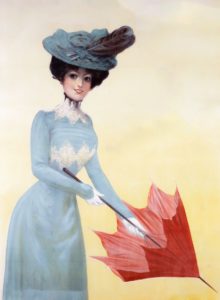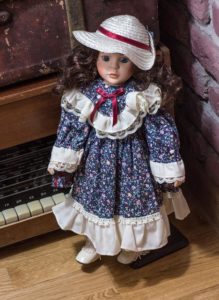A Great and Terrible Beauty
The Gemma Doyle Trilogy
By Libba Bray
I’ve had this book on my shelf for over a decade, and I am so sad I didn’t pick it up until now. A Great and Terrible Beauty is many of my favorite things in one pretty package: historical fiction, fantasy, and young girls finding out who they want to be. I read the entire series in just a few days, which means I’m having to backtrack to write these reviews. I regret that a little, but I just couldn’t put the books down!
I actually have very few complaints about this book. Gemma, the main character, is fun to follow, and I love her inner dialogue; she’s sarcastic and witty in equal measure. I found myself laughing a few times while reading! Each character in A Great and Terrible Beauty has a distinct personality and motivation. And they clash! Even the main four girls have conflict between each other frequently, which is something I really appreciate in books because it cultivates character growth or, at the very least, understanding. There’s some wonderfully written tension between Gemma and Kartik too. No, really, it’s great. (And it gets better in the next couple books.)

Bray deals with the Victorian era rather well. Most of the girls in the story are worried about their futures in relation to making a good marriage. Some girls are happy with that. Some are ambivalent. Some don’t care. And some are actively hostile toward the prospect. Pippa, one of my favorite characters, wants to marry for love and is instead betrothed against her will. Ultimately, she makes her choice. (Guess you’ll have to read the book to find out what she decided!) Felicity doesn’t wish to be married at all! Ann would like to be swept off her feet and live a safe, stable life as a lady. Gemma doesn’t know quite what she wants yet, but she’ll figure it out eventually.
There’s a few spaces in A Great and Terrible Beauty that have mentions of racism: one inner thought of a character not “supposed” to find someone of a certain race attractive was the one mention that really stuck out to me. Honestly, I think it wasn’t necessary in the book at all. I understand the time and place the book is set in, but the “way of the world” for the time is obvious enough through action and interaction. And for the character, it felt, well, out of character.
A major theme in this book is control. Who has it? Who wants it? And what are these clashing parties willing to do to get it? There’s an argument for man versus woman to be made—which will come back to haunt us in book three—but A Great and Terrible Beauty mostly deals with loss. There’s so, so much loss in this book. It’s not always a bad thing, but the main characters are 16-year-old girls trying to find their place in the world and finding they have very little wiggle room.
But on to something happier: the magic! I adore the magic system in this book. It’s a physical thing. It drains and fades. There are consequences for its use! I really enjoyed how the magic affected the girls’ mental states. It changed how they felt about their futures. About life. And that alteration caused a need for more. More power. More control. More freedom.

I love how Libba Bray writes. Her descriptions are immersive and unique and fit the story to perfection. I didn’t notice any phrases “out of their time” either. Bray’s world is alive and full of amazing characters and conflicts. At this point, it’s obvious I recommend this book—the whole series—so what’re you waiting for? Have fun!
~ Anna
(Entry 22)












